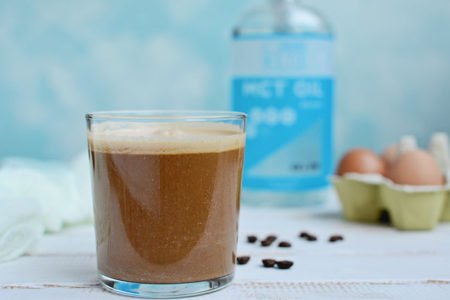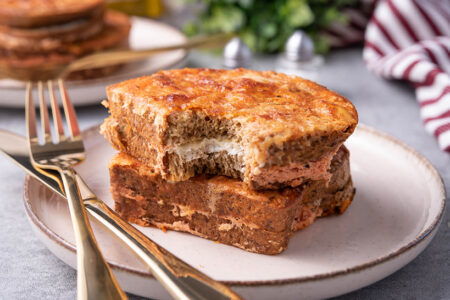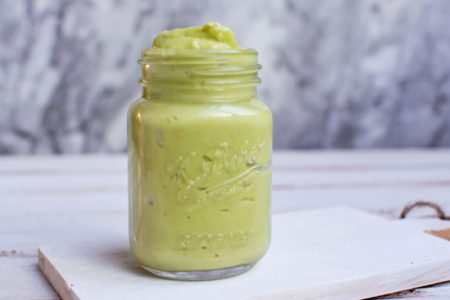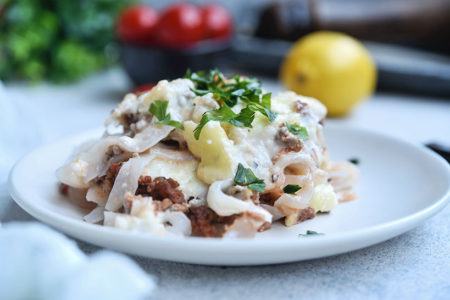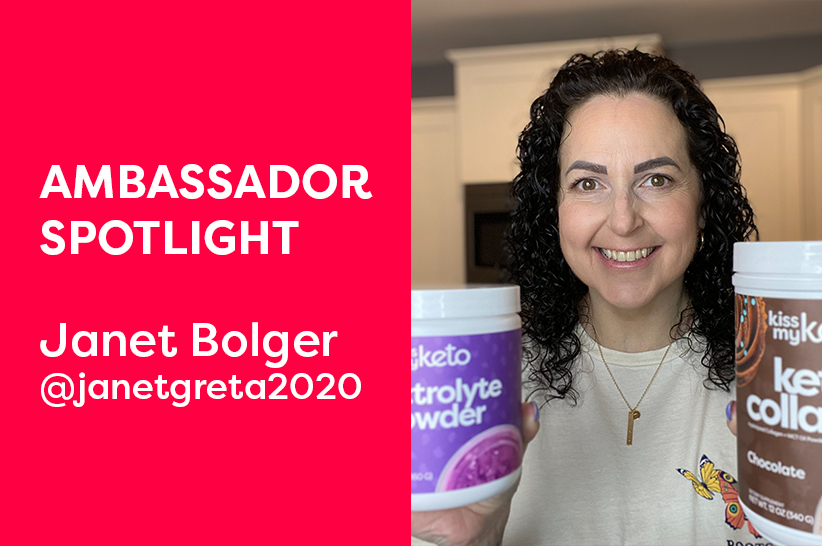A common misconception is that carbohydrates are needed to build muscle. The truth is, building muscle on keto is possible. This guide teaches you how to maximize your gains while going low-carb.
I know that many people are uncertain when it comes to building muscle on keto. Is it truly possible? But wait. Aren’t carbohydrates necessary to achieve muscle gain?
What’s great about the low-carb, high-fat diet is that it isn’t merely designed for fat loss. If you’re an athlete or fitness enthusiast looking to gain muscle, then keto is for you.
Read on to learn about how building muscle on keto works.
Can You Build Muscle on Keto?
We see bodybuilders load up on carbs all the time. No wonder why high-glycemic supplements and meal plans are common in the world of muscle building.
But let’s make this clear once and for all:
You can gain muscle on keto successfully.
A high-carbohydrate is not a must to bulk up. Contrary to common belief, you do not need to consume carbohydrates post-workout to boost muscle protein synthesis.
In fact, there is zero evidence that adding carbs to a protein supplement increases muscle mass and lean body mass than consuming a protein supplement alone. This is based on a research study by the Journal of the International Society of Sports Nutrition 1.
Well, if that is the case, you might be wondering:
Why do avid carb-eaters look bigger when following a strength training regimen? Here’s why:
Glycogen, the storage form of carbs, attracts water 2. Since your muscles hold water, they appear “buffed up.” But keep in mind: It’s not pure muscle you’re looking at!
What Type of Keto Diet Is Best for Building Muscles?
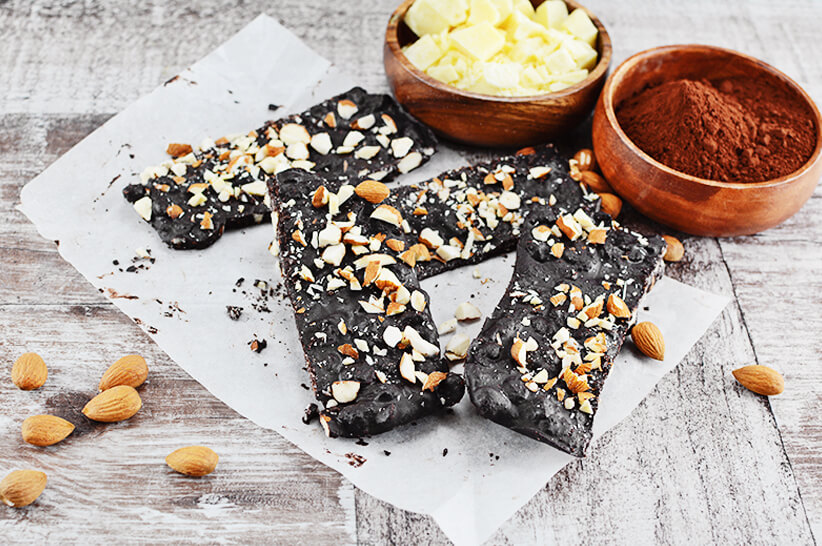
Many keto foods are high in protein.
Gaining muscle on keto is a wonderful possibility with the right dietary approach. What specific keto diet for bodybuilders do you need?
First of all, there are many types that exist. But we agree that a Targeted Ketogenic Diet is best for muscle gains and workout performance.
Here’s what this diet entails.
A Targeted Ketogenic Diet (TKD) requires you to consume 20-50 grams of carbs before you exercise.
Many people find that “carbing up” 30 minutes before their training session works best. It gives them extra energy to push through their workout. An alternative is to carb up immediately after your training session.
Important: Don’t eat carbs for the rest of the day.
On a different note:
You may have heard about the Cyclical Keto Diet (CKD) as another option for gaining muscle. We do not recommend this approach for new ketoers since it involves carb-loading 1-2 days a week. This can slow down your transition into ketosis.
Yet, do experiment with it when you’re fully keto-adapted.
How to Build Muscle on Keto
By now, you already know the best diet for keto muscle gain – a targeted ketogenic diet. Next up: What essential steps should you take to start packing on muscle?
Reduce carbs
Eating fewer carbohydrates is an absolute must. It doesn’t matter what keto diet variation you’re using. So make sure that you nail it right from the start.
If you exercise four to five times a week, aim for 20-50 grams of carbs daily. This carb limit depletes your stored glycogen and triggers ketone body production. Note that by this time, ketone bodies now become your fuel source 3.
It’s easy to focus too much on decreasing carbs and ignoring other macros. Make sure that you increase dietary fat. Healthy fats should comprise 55% to 60% of your diet.
Swapping out carbs for fats will keep you satiated. Remember: When you’re new to the diet, you may struggle with constant hunger. Healthy fats help.
Virta Health reveals that patients, after eating a high-fat diet, reported feeling satisfied even though they consumed fewer calories 4.
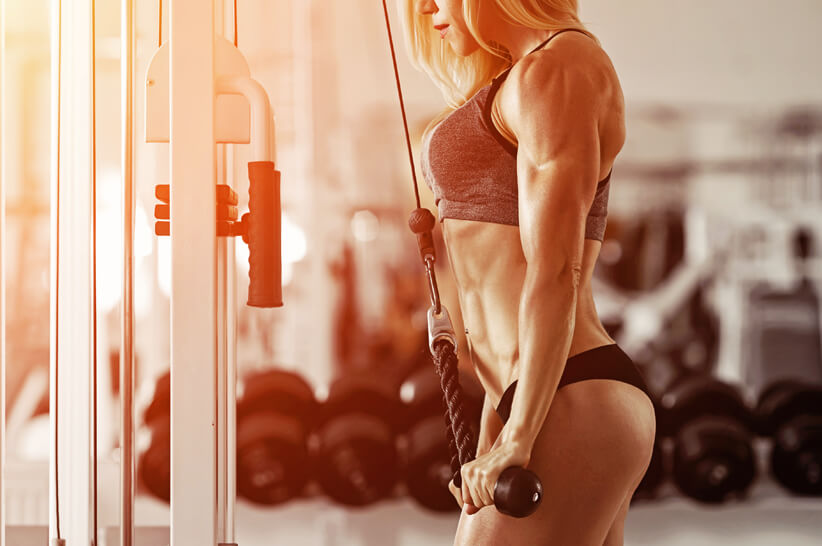
Strength train
It’s no secret that resistance training maximizes your gains. There are many ways to boost the size and strength of your muscles.
Keto bodybuilders swear by these exercises:
- Bodyweight workouts like planks, push-ups, and squats.
- Free weight exercises like dumbbell shoulder presses, triceps extensions, and hammer curls.
- Gym machine workouts like leg presses, and cable overhead triceps extensions.
There are many options available for you. What I mentioned above are only a few. Gradually increase your workout intensity based on your experience level!
Increase protein intake
You need to have enough protein to build muscle. Your body breaks down protein into amino acids which fix up those muscle tears from your workouts.
If you’ve come from a high-carb diet, you could be at risk of consuming insufficient protein.
Why is that?
Unless you know the correct dietary protein intake on keto, you might still be following the recommended RDA – 0.8 grams of protein per kg body weight 5. This is much lower than what a well-formulated keto diet recommends.
On a well-formulated ketogenic lifestyle, increase your protein to 1.2 to 1.75 grams per kg 6. This higher protein range already accounts for stress, aging, illness, and calorie restriction 7.
What does a keto bodybuilding meal look like? For that reason, we prepared this easy sample meal plan. Check out this sample meal plan:
| Breakfast | Lunch | Dinner |
| Keto Chorizo Omelette With 21.1 grams of protein per serving. |
Stuffed Pork Roast With 52.3 grams of protein per serving. |
Keto Chili With 33.2 grams of protein per serving. |
| Keto Hot Pockets With 23.7 grams of protein per serving. |
Cajun Parmesan Salmon With 32.9 grams of protein per serving. |
Buffalo Chicken Casserole With 26.8 grams of protein per serving. |
| Baked Mini-Frittatas with Mushrooms With 11.3 grams of protein per serving. |
Easy Instant Pot Crack Chicken Recipe With 31 grams of protein per serving. |
Slow Cooker French Onion Soup With 13 grams of protein per serving. |
Take supplements
People on a healthier lifestyle take supplements to support their goals. Supplements are necessary when you’re going “ketogenic” and on a muscle-building journey.
Here’s why:
A restricted diet such as keto can put you at risk for micronutrient deficiencies. This is something we can all expect when eliminating foods from our diet. In this case, carbohydrates-rich foods.
Several micronutrients help provide energy, grow muscle, and burn fat. You cannot afford to miss out on these micronutrients.
Also, notable supplements like MCT oil and exogenous ketones make bodybuilding easier. We’ll explain why as we introduce each supplement below.
Optimize keto diet body building with the following supplements:
Vitamin B
B vitamins such as B1, B2, B6, and B12 are important for both aerobic and anaerobic exercise. These vitamins process fats to produce energy. They also enable oxygen to reach your muscles 8.
Study shows that consuming less than one-third of the B vitamins can decrease your VO2max 8. Note: VO2max describes your maximum energy intake. It relates to your physical working capacity!
Creatine
Creatine supplementation is popular in the bodybuilding world. A simple recap on creatine: It is a chemical that’s abundant in your muscles. Furthermore, it enables you to lift heavy weights and perform high-intensity workouts.
What’s great is that creatine monophosphate supplement has been widely researched. It’s known to effectively improve lean body mass 9.
The International Society of Sports Nutrition states that creatine supplement is safe as long as it is used correctly 9.
MCT oil
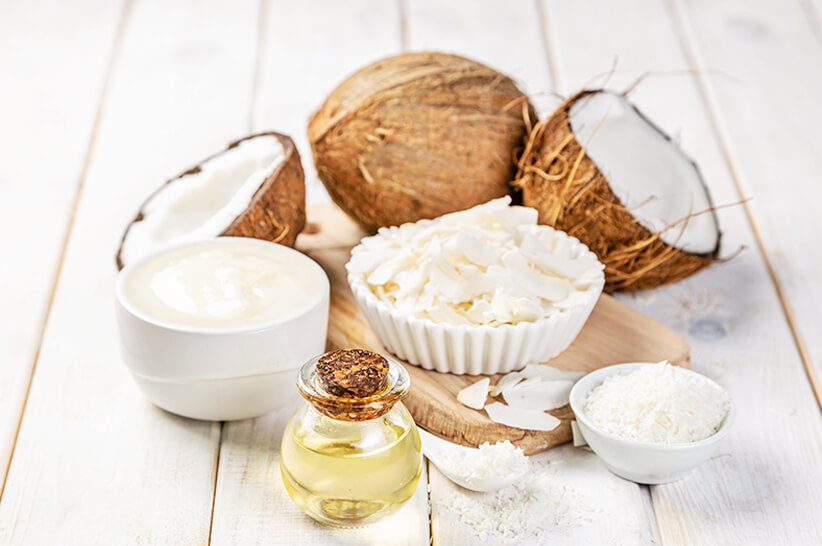
Coconut is a natural source of MCTs.
MCT stands for medium chain triglycerides. These are fats found in coconut oil. A must-have on a ketogenic lifestyle, MCT oil has the following benefits:
- Serves as an immediate source of fuel for your workout
- Preserves muscle mass during fat loss
- May reduce lactate buildup in muscles
The key is to take this supplement whenever you need more energy. That’s right before your training!
Vitamin D
Vitamin D maintains normal muscle function. A lack of vitamin D results in weakness and poor muscle function 10. This vitamin is also essential for absorbing calcium and phosphorous. Calcium and phosphorous enable your muscles to contract.
BCAAs
BCAAs stand for branched-chain amino acids. Athletes and fitness enthusiasts ingest BCAAs for many reasons. One of them is to build muscles by increasing protein synthesis. At the same time, BCAAs decrease protein degradation 11.
BHB exogenous ketones
While your body produces BHB or beta-hydroxybutyrate in ketosis, you can supplement with it. BHB enhances your athletic performance as it allows you to exercise at a higher intensity 12.
Fact: BHB is your major ketone body and it’s the most-efficient fuel.
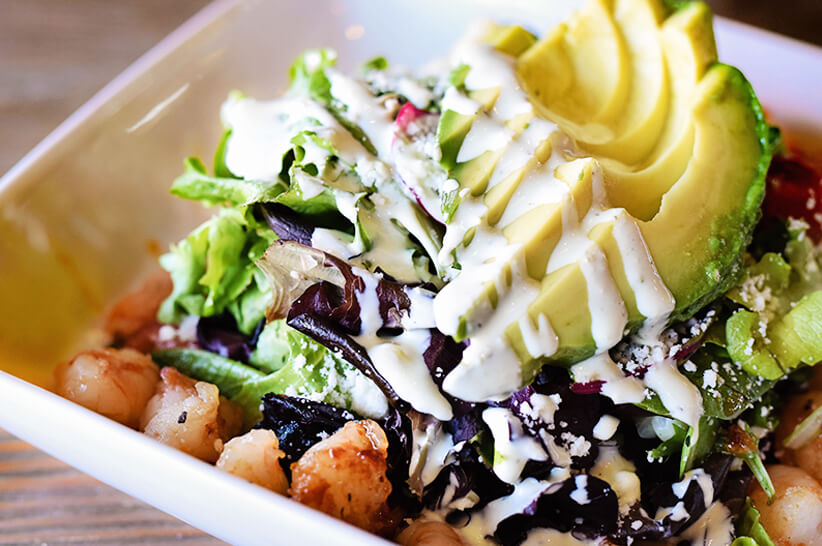
What to Avoid When Building Muscles on Keto
You already know the steps to becoming bigger, stronger on a low-carb lifestyle.
But what about the things to steer clear of? What are these practices that could hinder your progress?
One mistake is overindulging in processed foods. We know that sugar is a common culprit. Unfortunately, it hides in a lot of fast and processed foods. Examples are cookies, breakfast bars, smoothies, and salad dressings 13.
Many people unknowingly consume too much sugar and wonder why they don’t build muscle. Excessive sugar leads to obesity.
Another mistake is not eating enough protein. Ketoers have a higher protein intake than a regular person. Do consume 1.2 to 1.75 grams of protein per kg body weight.
Can you build muscle on keto? YES! With the right macros, meals, and workouts, it’s not impossible to achieve it. Many studies already prove that keto combined with muscle building works.
I understand that someone new to the diet may struggle at first. But be of good cheer – this is only temporary. Take supplements, train regularly, and most importantly, stay patient!
Takeaways
- Carbohydrates for muscle gains is a huge myth.
- Replace carbs with healthy fats to keep you from feeling hungry often.
- Increase your dietary protein to at least 1.2 grams per kg daily.
- Prioritize whole foods over processed foods (that are likely to contain sugar).
- Support muscle growth and performance with the right supplements.


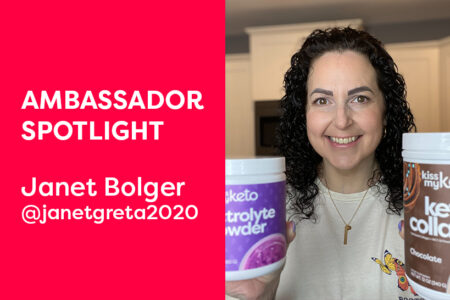

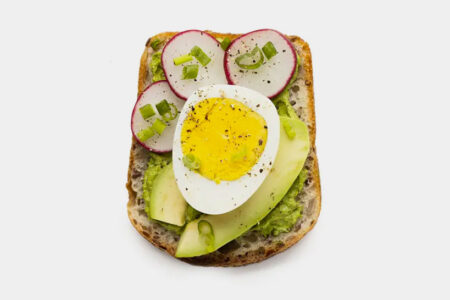
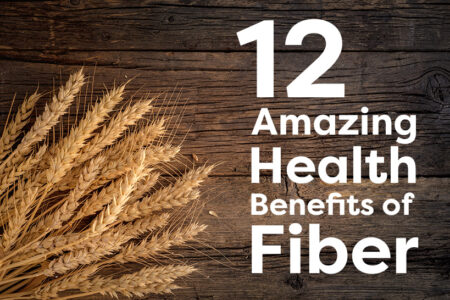
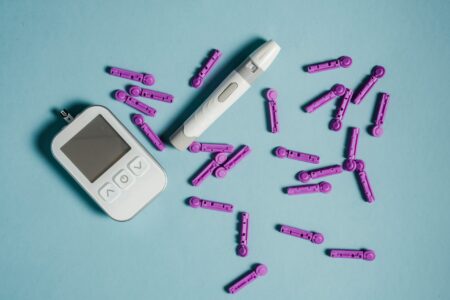


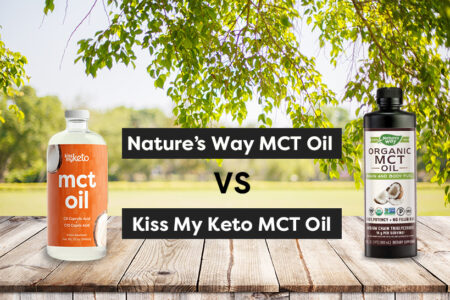
![Juicing for Weight Loss: Everything You Need to Know [Plus Recipes]](/wp-content/uploads/2019/08/Juicing-for-Weight-featured-image.jpg)

